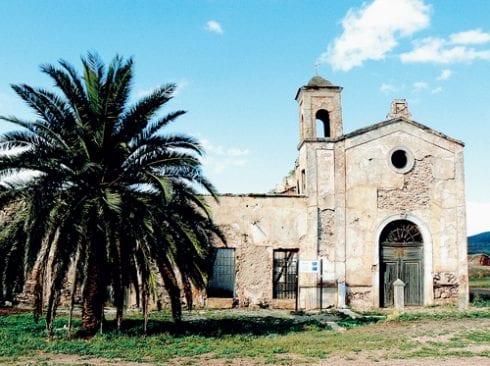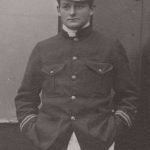By Mason Jones
BRICKS were hurled down Whitechapel Road and lorries overturned to barricade London’s East End.
Over 300,000 people had gathered on October 4 1936 to block the route of Oswald Mosley and his 5,000 fascist Blackshirts.
Jews and Irish Catholics stood side-by-side with communists, trade unionists and Labour party members chanting in Spanish – ‘No pasaran’ – ‘They shall not pass’.
Police horses fell on marbles as the commissioner called for the route to be cleared for the Blackshirts, but the East End refused to budge.
Mosley would not march down Cable Street.
This would be Spanish Civil War hero David Lomon’s first battle against the wave of fascism that was goose-stepping its way across Europe.
Next time, however, it would not be on the streets of Hackney and he would be the one outnumbered.
Born to Jewish parents, David would go on to join 35,000 other men and women from across the globe to aid the Republican fight against General Franco and his fascist regime in Spain.
From where the famous term ‘No pasaran’ had heralded, most of the 2,500 British volunteers had no experience of war and came largely from working class backgrounds.
Although volunteers came from a vast mixture of religions and classes, not to mention political backgrounds, they all shared one common ideal; that fascism had to be stopped.
“The awful realisation that fascism was on the march right across Europe created a strong desire to act,” said the late International Brigade soldier Jack Jones, being interviewed before his death in 2009.
“The march had started with Mussolini and had gained terrible momentum with Hitler and was being carried forward by Franco,” added the veteran. “We wanted to halt the march.”
Many members of the Jewish community joined the group after hearing of the anti-Semitism being preached throughout Europe, while numerous literary figures included W. H. Auden, George Orwell and Laurie Lee.
Cider with Rosie writer Lee said: “I believe we shared something unique to us at that time, the chance to make one grand and uncomplicated gesture of personal sacrifice and faith, which might never occur again.
“Few of us yet knew that we had come to a war of antique muskets and jamming machine-guns, to be led by brave but bewildered amateurs.
“But for the moment there were no half-truths and hesitations, we had found a new freedom, almost a new morality, and discovered a new Satan, fascism.”
Later that year a 19-year-old David Lomon – whose death last month heralded the last in a generation of defenders of the Republic from the UK – didn’t even tell his mother he had signed up to cross the Pyrenees to receive his first taste of military service.
With British and French prime ministers Stanley Baldwin and Leon Blum calling for Europe not to intervene in the Spanish Civil War, the International Brigade volunteers would have to travel with caution.
As they crossed the huge geographical range that marked the border of Spain, they firstly had to avoid French border police carrying out orders to stop any would-be Republicans.
The successful ones would spend the night in the castle of Figueras, and from there travel by rail to Albacete which had been assigned as the main International Brigade base in the Autumn of 1936.
Men were then divided up according to their origin – and mostly language – and dispatched to appropriate battalions.
Training was limited for the volunteers, as were resources and weaponry.
The Soviet Union had started to ship arms to the Republicans, but their efforts could not match the weapons or man-power being supplied to Franco by both Nazi-Germany and Italy who broke the non-intervention agreement almost immediately.
Lomon would soon be fighting the fascist ideals that had invaded London and driven him to leave for Spain, but the fight would be very different from Cable Street.
He was quickly dispatched to the battle of Teruel, perhaps the bloodiest of the entire war, which began in December 1937 during one of the worst winters in 20 years.
Lomon was one of the 100,000 strong team assigned to capture the provincial capital and distract Franco from Madrid.
By Christmas they had made it into Teruel and through treacherous conditions sent the Nationalist defenders packing.
But Franco was quick with a counter-attack, sending in more troops to apply pressure to the Republican offensive.
Frostbite had already claimed many casualties when the heavy artillery of the Nationalist troops arrived on New Year’s Day.
The Republicans could no longer hold on to the town when Nationalists surrounded Teruel on February 20 and the remaining survivors were forced to retreat.
After what had been a two-month struggle through constant blizzards and the bloodshed of over 140,000 casualties from each side combined, Lomon and an exhausted brigade moved on to enter yet another brutal battle, the battle for Aragon.
With a large portion of the Republican army still suffering from Teruel, many of the front line troops in Aragon were inexperienced and ill-equipped as weapon supplies began to dry up from the Soviet Union.
Franco, with the aid of Nazi-Germany, hammered the Republican forces with air strikes and artillery attacks while Italian dictator Mussolini supplied thousands of additional troops.
The plains of Aragon provided perfect landing pads for Nationalist aerial artillery, driving the Republicans out of position and forcing retreat.
The US, Canadian and British battalions of the brigade were the last ones out of the bomb-wrecked region, but many were not so lucky.
Lomon was one of hundreds of men captured by Nationalists and sent to a prisoner-of-war camp in San Pedro de Cardenos.
Subjected to beatings, denied medical aid and living on starvation rations, one in five of the foreign volunteers died in the prison.
Fortunately David made it out alive later that year when he was exchanged for Italian prisoners held captive in Britain. He headed straight back to England.
He was lucky not to have been put in prison on his return and soon married an English woman and went on to have three children.
While he was drafted to fight in World War II, he survived to go on and work in a clothes shop called Barnett Lawson Trimmings for 35 years. He retired in 1982 as Managing Director.
Franco’s eventual victory proved what many of the volunteers had predicted before they had even left the British Isles.
They realised that Spain would be the testing ground for fascism, and should it triumph it would be exercised on a much larger scale.
Adolf Hitler would soon be causing more bloodshed with iron and steel supplied by none other than General Franco.
Whatever political alignment the volunteers of the International Brigade may have had, they were all united by the chant of ‘They shall not pass’… a cry, which sadly fell on deaf ears as Franco eventually rolled them over to win the civil war.
Either way, as the family of David Lomon gathered to say goodbye to the late Londoner last week, Great Britain, Spain and Europe should say thank you to one of its many unassuming war heroes.








A true hero in the fight to everthrow facism in Europe. last of a breed perhaps?